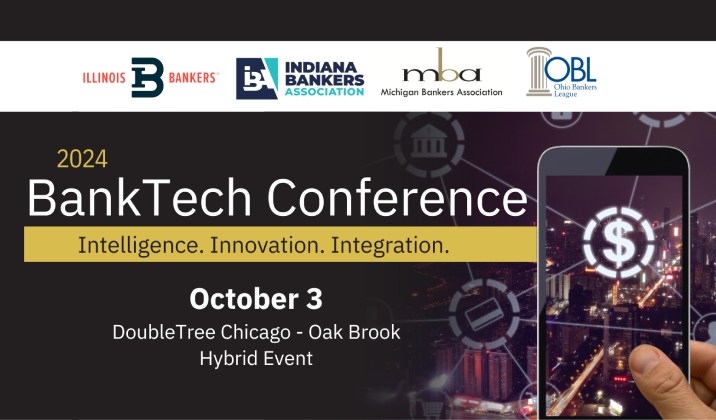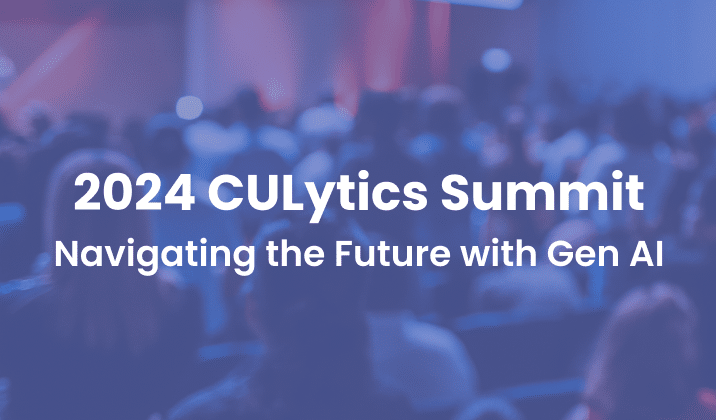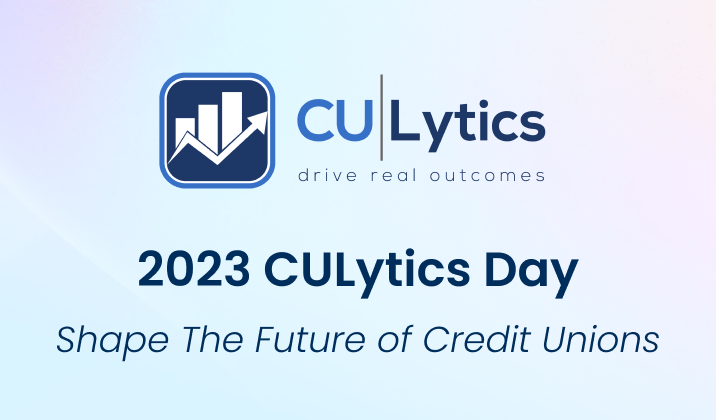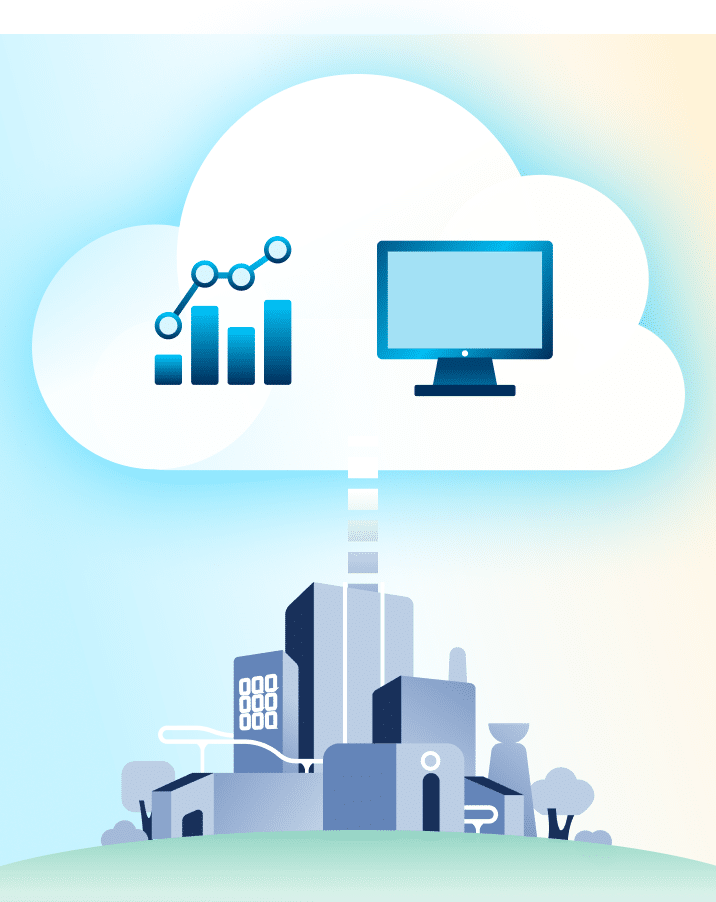GoWest MAXX Convention 2024
GoWest MAXX Convention 2024
Gaylord Rockies Resort & Convention Center, Aurora, CO
Aunalytics to attend the 2024 GoWest MAXX Convention
Aunalytics is thrilled to be an exhibitor at the 2024 GoWest MAXX Convention in Aurora, CO on October 13-16, 2024. Aunalytics will be at booth #193 demonstrating our member intelligence solution which enables credit unions to use AI to increase deposits and more effectively identify and deliver new services and solutions—allowing them to compete with large national banks.

2024 Jack Henry Connect
2024 Jack Henry Connect
Phoenix Convention Center, Phoenix, AZ
Aunalytics to attend 2024 Jack Henry Connect
Aunalytics is excited to attend 2024 Jack Henry Connect. Representatives from Aunalytics will be demonstrating our customer intelligence solution at booth #830. Aunalytics enables financial institutions to increase deposits and more effectively identify and deliver new services and solutions for their customers and members so they can better compete with large national banks.

2024 BankTech Conference
2024 BankTech Conference
DoubleTree by Hilton Hotel Chicago - Oak Brook, Oak Brook, IL
Aunalytics to be featured at the Innovators' Showcase at the 2024 BankTech Conference
Aunalytics is excited to attend and exhibit at the 2024 BankTech Conference, presented by a partnership of Illinois, Indiana, Michigan, and Ohio state banking associations in Oak Brook, IL. Kyle Davis, VP, Managed Analytics from Aunalytics will be demonstrating how our customer intelligence solution enables banks to increase deposits and more effectively identify and deliver new services and solutions for their customers so they can better compete with large national banks.

2024 Indiana Credit Union League Annual Meeting & Convention
2024 Indiana Credit Union League Annual Meeting & Convention
JW Marriott Indianapolis, Indianapolis, IN
Aunalytics to attend the 2024 Indiana Credit Union League Annual Meeting & Convention
Aunalytics is thrilled to be an exhibitor at the 2024 Indiana Credit Union League Annual Meeting & Convention in Indianapolis, IN on October 2 – 4, 2024. Aunalytics will be at booth #20 demonstrating our member intelligence solution which enables credit unions to use AI to increase deposits and more effectively identify and deliver new services and solutions—allowing them to compete with large national banks.

Banking Forward: Analytics Trends in Financial Services
Banking Forward:
Analytics Trends in Financial Services
In the world of financial services, staying ahead of competition means embracing analytics trends that enhance customer and member experiences and operational efficiency. As technology continues to reshape the industry, financial institutions are turning to advanced analytics solutions to gain insights on customer and member behaviors.
Higher Customer and Member Engagement through Online and Mobile Services
Improving the online and mobile experiences is at the forefront of modern banking strategies. Institutions are not only investing in robust mobile banking apps but also leveraging app data to gain deep insights into customer or member behavior. By analyzing transaction patterns, engagement metrics, and user feedback, banks can uncover valuable insights that inform strategic decisions and improve service offerings. This increased access to mobile services significantly enhances the customer and member experience by providing convenient access to financial information anytime, anywhere.

It’s important to note that improved mobile services play a crucial role in shaping personalized experiences, which have become a cornerstone of customer engagement in the banking industry. Through advanced analytics, banks can decipher intricate client data to understand their preferences, goals, and financial behaviors. This allows them to create tailored advice and personalized financial plans on a large scale. Detailed client profiles allow banks to anticipate needs and offer relevant products and services proactively, thereby enhancing customer satisfaction and loyalty.
Highly Personalized Advising
Advising Services, like personalized experiences, is another solution that ensures each client receives tailored assistance aligned with their specific needs. Advising Services have evolved significantly with the integration of customer relationship management (CRM) technology. By using CRM tools, banks can compile comprehensive customer profiles enriched with transaction history, communication preferences, and financial goals. This wealth of data allows financial advisors to deliver customized guidance that addresses each customer’s unique circumstances and aspirations. Such personalized advisory services foster stronger client relationships, driving loyalty and retention in a competitive market.
Enhanced Customer Service through AI-Powered Chatbots
Similarly, AI (Artificial Intelligence) is revolutionizing customer interactions within the banking sector and how they might seek out help. AI-powered chatbots are being deployed to handle routine inquiries and provide instant assistance, reducing wait times and enhancing customer satisfaction. These chatbots are integrated seamlessly into banking platforms, offering users real-time support and guidance. Moreover, AI-driven virtual assistants are being used to deliver personalized money management tips, empowering customers and members with actionable insights to make informed financial decisions.
Open Banking Initiatives
And while AI is implemented to assist clients, open banking ensures that clients retain ultimate control over their data. Open Banking represents a new era of connectivity and collaboration in financial services. By securely sharing customer information through APIs (Application Programming Interfaces), banks can build partnerships with third-party applications and services. This integration allows for enhanced functionalities such as aggregated financial insights, streamlined payment processes, and personalized financial recommendations.
Predicting and Preventing Fraud and Cyberthreats
Finally, with the increase of cyberthreats and ransomware, cybersecurity and fraud detection continue to trend as well. Effectively identifying and mitigating malicious threats calls for strategic planning and investments in tools and infrastructure. Investing in cybersecurity further enhances customer and stakeholder trust by committing to protecting their data and assets.

In conclusion, the banking and credit union sectors are embracing advanced analytics trends to enhance customer experiences, streamline operations, and drive sustainable growth. By leveraging technologies like AI, CRM, and open banking principles, institutions can deliver personalized services that cater to individual needs and preferences effectively. Embracing these trends not only positions banks as industry leaders but also ensures they remain relevant and responsive to evolving customer expectations in a digitally-driven world.
At Aunalytics, we are committed to empowering community banks and credit unions with cutting-edge solutions that leverage these trends. By partnering with us, community banks and credit unions can optimize their operations, strengthen customer and member relationships, and prevent cyberattacks and fraud events that can erode consumer trust. We believe in supporting our clients to ensure that they remain at the forefront of the financial services sector.
2024 CULytics Summit
2024 CULytics Summit
Microsoft Commons, Redmond, WA
Aunalytics to attend the 2024 CULytics Summit in Redmond, WA as a Gold Sponsor
Aunalytics is thrilled to attend the 2024 CULytics Summit at Microsoft Commons in Redmond, WA. Representatives from Aunalytics will be available at our exhibition booth to demonstrate our customer intelligence solution which enables credit unions to use AI to increase deposits and more effectively identify and deliver new services and solutions—allowing them to compete with large national banks. Aunalytics is also proud to sponsor the session, “Powerful anecdotes to shape your engagement strategy” featuring Benjamin Smith, VP of Business Intelligence at Communication Federal Credit Union on Wednesday, Mar 27th from 11:10 AM – 11:30 AM (PST).

2024 MBA BEST Conference
MBA BEST Conference 2024
Michigan Bankers Association
Grand Traverse Resort & Spa, Acme, MI
Aunalytics to exhibit at the 2024 MBA BEST Conference as a Silver Sponsor
Aunalytics is proud to be a Silver Sponsor of the 2024 MBA BEST Conference, presented by the Michigan Bankers Association in Traverse City, MI. Representatives from Aunalytics will be demonstrating how our customer intelligence solution enables banks to increase deposits and more effectively identify and deliver new services and solutions for their customers so they can better compete with large national banks.

ICBA Live 2024
ICBA Live 2024
Independent Community Bankers of America
Orlando World Center Marriott, Orlando, FL
Aunalytics to exhibit at ICBA LIVE, presented by Independent Community Bankers of America
Aunalytics is excited to attend ICBA LIVE 2024, powered by the Independent Community Bankers of America. Representatives from Aunalytics will be exhibiting at booth #241 and talking to attendees about our how our customer intelligence solution enables banks to increase deposits and more effectively identify and deliver new services and solutions for their customers so they can better compete with large national banks.

2023 CULytics Day
2023 CULytics Day
Aunalytics to showcase Daybreak at 2023 CULytics Day
Aunalytics is pleased to be a Gold Sponsor of 2023 CULytics Day, where we will be sharing information on how AI can be used to help credit unions discover insights in their data and gain a more complete view of their members. Aunalytics’ cloud-native data platform, Daybreak™ for Financial Services, enables users to focus on critical business outcomes. Daybreak seamlessly integrates and cleanses data for accuracy, ensures data governance, and employs AI and machine learning to glean intelligence from transactional data.

Organizations Shift to Cloud-Based Analytics and IT Platforms
The growth rates of cloud-based IT solutions in the areas of analytics and artificial intelligence have been substantial in recent years. The increasing volume of data and the need for faster, more accurate insights have driven organizations to adopt cloud-based analytics solutions at a rapid pace. This has resulted in the growth of cloud-based data warehousing, business intelligence, and big data analytics solutions.
Similarly, the growth of artificial intelligence has been driven by the cloud, as it allows organizations to access powerful AI algorithms and training data without having to invest in expensive hardware. The cloud has also made it possible for organizations to scale AI solutions quickly and easily, leading to an increase in the adoption of cloud-based machine learning and deep learning solutions. These trends are expected to continue as organizations look to leverage the power of AI and analytics to gain a competitive edge in the market.

This growth in cloud-based analytics and AI has been driven by the larger business adoption of cloud IT because of its numerous benefits such as increased flexibility, scalability, and cost savings. Cloud technology allows companies to access their data and applications from anywhere, reducing the need for physical infrastructure and freeing up resources for other areas of the business. This shift towards cloud computing has also improved disaster recovery and business continuity, as data can be stored and accessed remotely. Additionally, with the rise of cloud-based solutions, businesses have been able to access advanced technologies and services without having to invest in expensive hardware and software. This has resulted in increased competitiveness, innovation and better overall business performance.
APIs add efficiency and flexibility to cloud environments
The power behind the most widely adopted cloud platforms are APIs (Application Programming Interfaces), which play a crucial role as they allow different software systems to communicate with each other and access data from the cloud. This has enabled organizations to build custom solutions and integrate disparate systems seamlessly, making the use of cloud technology much more efficient and flexible.
APIs also allow for automation and streamlining of processes, reducing manual errors and freeing up time for more valuable tasks. APIs make it possible to add new functionality and services to existing systems, allowing for continuous improvement and innovation. In essence, APIs provide a bridge between the cloud and an organization’s systems, enabling organizations to harness the full potential of cloud computing and drive digital transformation.
Analytics moves to the cloud
In terms of business outcomes, cloud-based analytics allow businesses to access and process large amounts of data in real-time, regardless of the size or location of their operations. This enables organizations to make informed decisions quickly and respond to changing market conditions with agility. Secondly, these solutions are much more cost-effective, as businesses only pay for what they use and do not have to invest in expensive hardware or IT infrastructure. The cloud provides businesses with access to a wide range of advanced analytics tools and technologies, enabling them to gain insights from their data in new and innovative ways. These solutions are highly secure and reliable when they are managed by experienced cloud service providers who ensure that data is protected and the solution is always available. Overall, they are considered to be a better choice for businesses because of their scalability, flexibility, cost-effectiveness, and secure approach to data analysis.
Likewise, cloud-based AI or AI as a Service (AIaaS) provides organizations with access to deep insights without having to invest in expensive experts or the necessary hardware and software to implement such solutions. This makes it easier for organizations to deploy and scale AI solutions as they only pay for what they use and do not have to invest in maintaining their own infrastructure. Furthermore, these solutions are more flexible and can be customized to meet specific business requirements, enabling organizations to generate valuable insights that help them to differentiate from their competitors. Finally, cloud-based AI makes it possible for organizations to collaborate and share AI models, allowing them to leverage the collective expertise of their partners, customers, and employees to create better solutions. In short, it is a high-value choice for businesses as it provides a more accessible, scalable, affordable, and collaborative approach to artificial intelligence.
Moving to the cloud accelerates digital transformation
Leading research and advisory firm Gartner reported that “Cloud migration is not stopping, IaaS will naturally continue to grow as businesses accelerate IT modernization initiatives to minimize risk and optimize costs. Moving operations to the cloud also reduces capital expenditures by extending cash outlays over a subscription term, a key benefit in an environment where cash may be critical to maintain operations.”
Aunalytics provides a highly redundant and scalable cloud infrastructure that enables midsized businesses to reap the benefits of the cloud at a reasonable cost. The Aunalytics Cloud provides a wide range of solutions—including cloud storage, backup and disaster recovery, application hosting, advanced analytics, and AI. Moving from on-premises computing to a cloud environment is a key step in an organization’s digital transformation.


